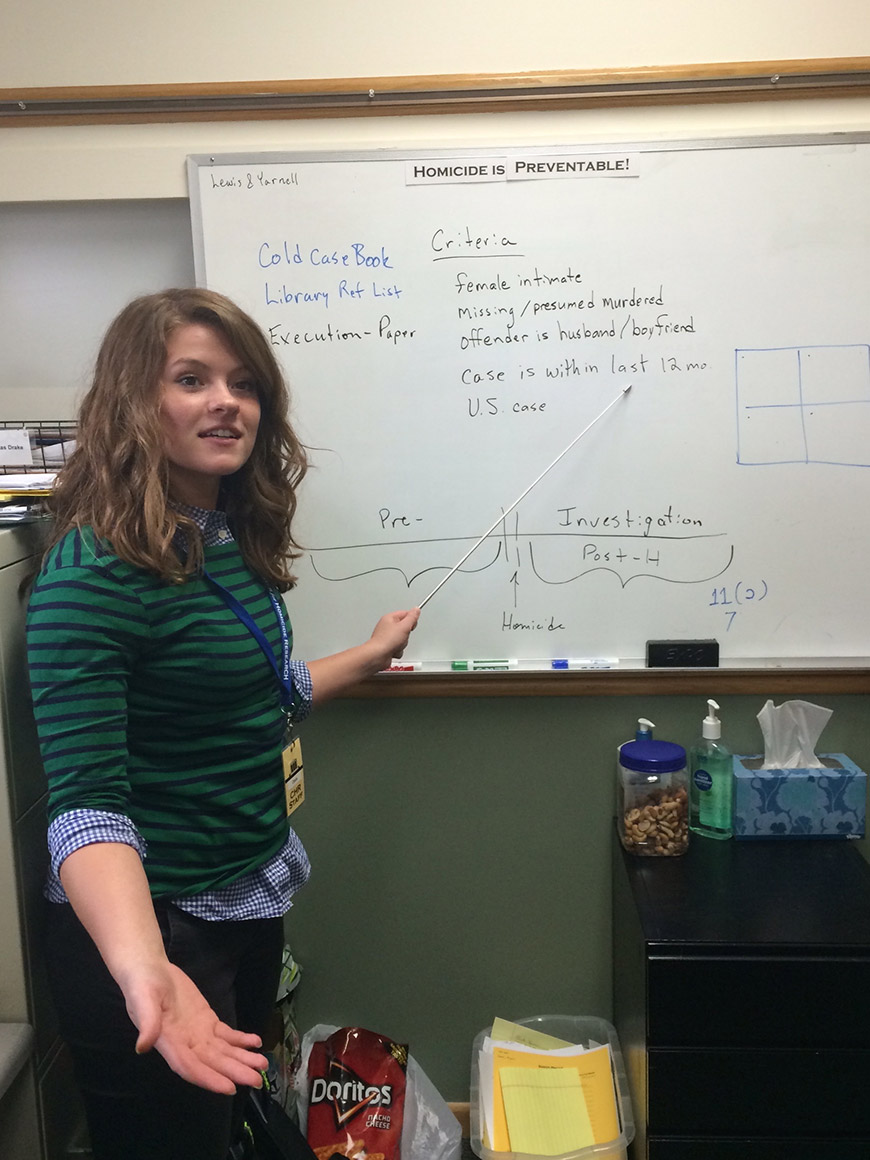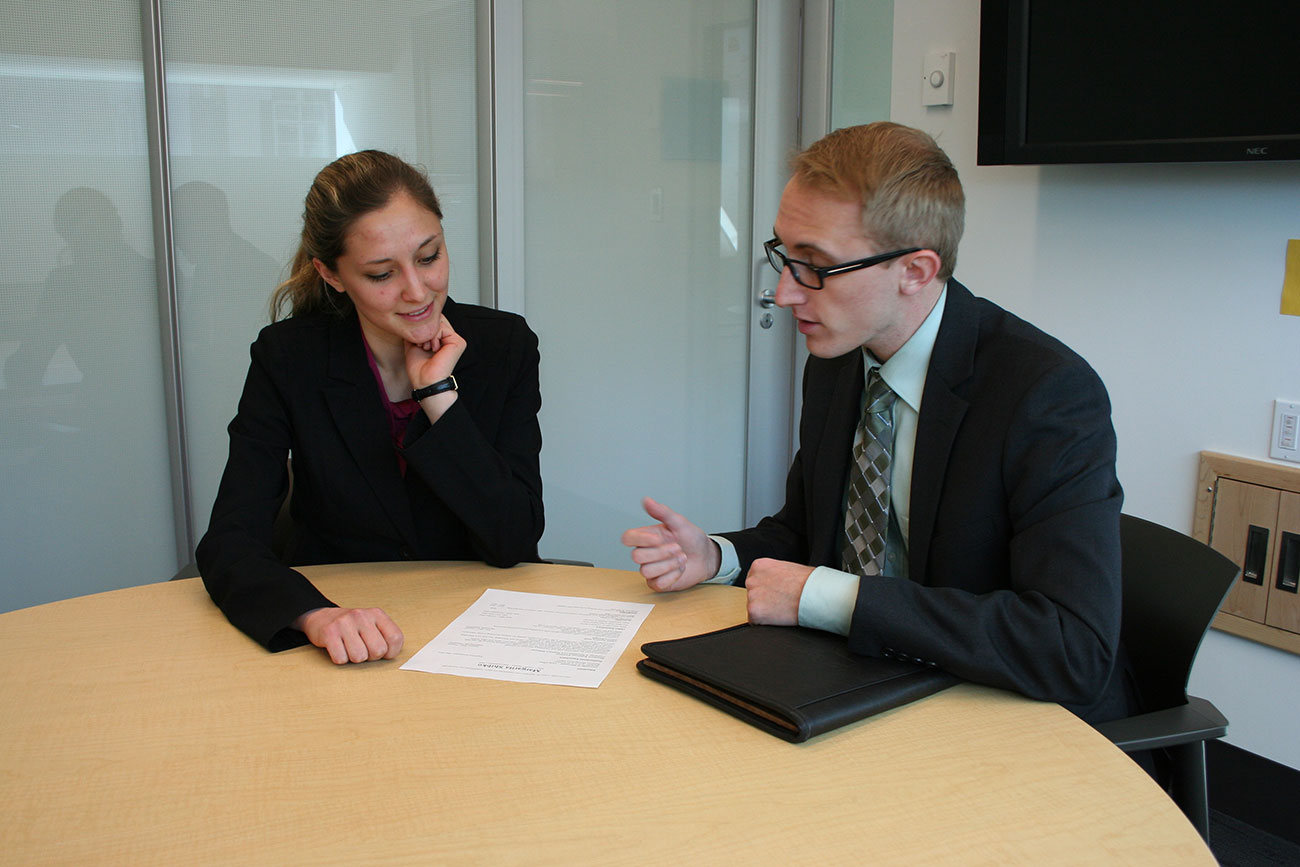Translating a Liberal Arts Education Into Language Employers Understand
Paul Timmins, Director of CLA Career Services
These aren't easy times to work in liberal arts student services!
Students and parents ask tough questions about the connection between liberal arts majors and careers. And, of course, their concern is understandable, given the rising cost of higher education and the challenging job market.
But, sometimes, the concern gets taken to extremes. Some students are convinced that they need a business or engineering major in order to have any hope of securing a job. And some governors and other legislative leaders across the country have floated proposals for deterring student selection of liberal arts majors by charging liberal arts majors at higher rates in hopes of motivating them to switch to STEM fields.
Yet, much of what my colleagues in CLA Career Services and I hear from employers paints a different, more optimistic picture. We had more employers recruiting in CLA last year, by far, than ever before. And employers visiting us on campus tell us that they value strong liberal arts graduates who have demonstrated the workplace skills that they will need for success after graduation. They want to hire our graduates!
We recruit and hire liberal arts graduates because of their well-rounded background and the fact these student receive exposure to many areas. The culture of C.H. Robinson Worldwide is diverse, fast-paced and ever changing. We need students that have the ability to be confident in making decisions on their own and are able to communicate in an effective manner. Liberal arts students are able to switch gears quickly and are able to adapt to new and different situations easily.
—C.H. Robinson WorldwideI would say that Liberal Arts students have the ability to navigate multiple environments. In a job that isn't within a vocational field, an employee is rarely working on an isolated task in a vacuum. They need to rely on experience, knowledge from multiple disciplines and professional communication skills to work on a team to complete complex tasks. Liberal Arts majors build just that: an ability to navigate multifaceted issues and tasks.
—Minnesota Reading Corps
So, why the disconnect? And, more importantly, how can we help CLA students both see the career possibilities that lie before them, and also implement successful career plans?
I often remind students is that no college major—not a liberal arts major, a business major, an engineering major, or any other major—includes a job guarantee. Employers need more than just a major.
Importance of Internships

When anyone applies for a job, the employer is evaluating them not solely based on any one characteristic —but, instead, on their total fit with the potential job. The major is one part of this fit, but it might literally be only one word on the resume. That's why it's so important for students to have meaningful experiences beyond the classroom. And my sense is that, for liberal arts students, it's even more important.
We've made some important strides in the CLA to support our students' pursuit of internships, and I really need your help to make sure our students are aware of these:
- The CLA Undergraduate Internship Scholarship (formerly known as the Internship Grant) has been DRAMATICALLY expanded in the past year, thanks to a substantial gift from the Kevin Mossier Foundation and several other donations made by generous friends and alumni of the College. The scholarship supports CLA students doing unpaid internships, generally in nonprofits or government settings. We used to have funding for around 10 grants per year; now we're able to award 50 or more. We've also increased the size of the awards from $1,200 to $1,500. Students should see the website for application instructions.
- The CLA Internship Fair launched two years ago, and it's been a huge hit! This fall's fair is September 27 from 10 a.m. to 2 p.m. in Coffman's Mississippi Room. It's open only to CLA students, and there is no charge for them to attend. The employers in attendance all want to recruit liberal arts students, and they all will be currently hiring interns. Check out the fair's website for a video that provides students with preparation tips, dates of our prep session workshops, and registration information.
- Our Internship Reflection Class (ID 3208) helps students get more out of their internships through intentional reflection. In the class, students strengthen the connection between their internship and career goals by creating learning contracts with their supervisors, revising their resume, and evaluating the skills that they are developing in the internship. The one-credit class is taught online.
- And, of course, GoldPASS provides our students with links to literally thousands of internship openings at any given time.
Obviously, internships are only one way for students to gain meaningful experience. A service-learning class, studying abroad, a good part-time job, a leadership role in a student organization, or any number of other activities can help students build their resumes.
I tell students that, ultimately, prospective employers are looking for job candidates to be able to illustrate, by providing examples, that they have the skills required for the workplace. That proof can be acquired in lots of different settings.
Helping Students Translate
But, just as a major doesn't guarantee a student a job, neither does a great internship.

Think about it: There's almost never a case where a job seeker is applying for a position that is identical to one of his or her previous jobs. There are always gaps between the applicant's previous experience and what the prospective employer wants the new employee to do. Employers, then, hire people who convince them—through networking, cover letters, resumes, and interviews —that they can thrive despite these gaps, and succeed in the new workplace.
In my own work with liberal arts students who are working on a job search, I spend a lot of time trying to build up their confidence. They simply MUST head into the job search ready to confidently explain how their experience —including their in-class and out-of-class education—fits with what the employer needs.
And our students who can effectively explain this match —or, in other words, those who can translate how their experience fits the employer's need—have a really strong story to tell.
As the employer quotes above illustrate, employers are looking for candidates with the skills to adapt as needs change, to work with diverse colleagues, and to switch gears quickly. Our recent research into the top skills desired by employers who hire University of Minnesota graduates found that the top three skills desired by our employers are:
- Interpersonal communication skills
- Able to function effectively as a team member
- Can learn new ideas quickly
These skills mirror what was found in spring study, [[{"attributes":{},"fields":{}}]], which was conducted by the Association of American Colleges and Universities. If you've never browsed through this study, I'd encourage you to take a few minutes to do so —the employers are saying, clearly, that our liberal arts grads have the skills to succeed in the workplace if they are ready to translate those skills for employers.
Making the Case
Every one of us working in CLA Student Services spends part of his or her time helping students see the value of a liberal arts education. I know that all of you have your own ways of articulating this value, and you have your own sources for learning about research and ideas that are relevant to your students.
I'd love to continue sharing ideas with all of you, so one thing I'm trying is using a blog to promote sharing of articles related to liberal arts careers. Just to try something different, earlier this year I created my Careers and the Liberal Arts Student blog. Lots of people send me articles, and one of my goals for the blog is to use it as a means to share those articles with others (you!) who might find them to be useful. So, please take a moment to check it out and add your name in the "Follow by Email" box if you'd like to receive notices when it's updated.
One of the articles I mentioned in my blog recently used the "advantage of creativity" as a way of articulating what our liberal arts graduates bring to the workplace. Thanks for all the work that each of you do to help our students understand the creative gifts that they have, and for helping them to translate those gifts for employers.